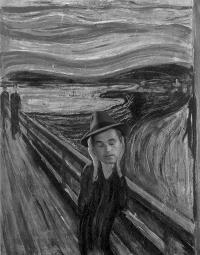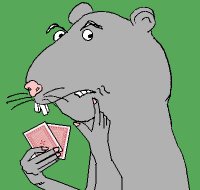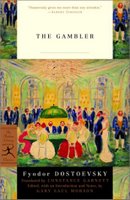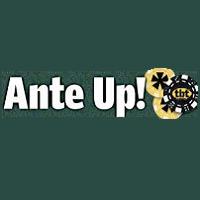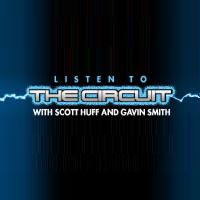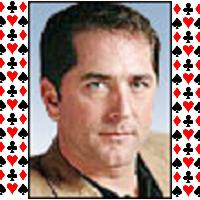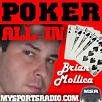Figuring Out If You're Out of Your League
Eddie’s essentially a small-time hood who gets in way over his head. His story shows (among other things) what happens when you try to operate as you normally would without recognizing you’re “out of your league” (to employ a much-worn cliché). Aside from those playing in the “Big Game” in Bobby’s Room at the Bellagio, most poker players are constantly wondering whether or not to take a shot at higher stakes. Particularly for those of us down here with the short stacks, just about any time we experience a decent run we wonder whether or not it might be time to try the next level up. If we’re human, that is. And like money.
I’ve noted before how I mainly stick with either the $0.50/$1.00 or $1.00/$2.00 limits -- technically speaking the very bottom of the “low” limit games or (more accurately) the upper reaches of the “micro” games. I’ve arrived here after starting at the penny tables on Stars and slowly inching my way upwards through the various increments available online. I’ve come to understand (for the moment, at least) that I’m now where I feel most comfortable and where I win most consistently. I’ve taken occasional shots at higher stakes, although it has never gone particularly well for me when I have. I’ll win a little, break even sometimes, and/or lose a lot, eventually having to admit that the moves I’m encountering are either unfamiliar to me or put me off my own game too much to go on. It’s a bit like what happened in little league when the kids started learning how to throw the curve. Hitting had always seemed easy, then suddenly the ball kept disappearing on me. A few dozen strikeouts later and I knew my baseball career was over.
In the final chapter of The Theory of Poker (“Evaluating the Game”), David Sklansky relates the story of a player named Jay Heimowitz from New York who started out playing in a $0.25/$0.50 game in the early ’60s. He quotes Heimowitz explaining how “I noticed I was winnning about $20 a week, and that $20 a week was the difference between my wife Carol and I going out to dinner . . . . Then I got the brainstorm that if I played in a $1 limit game, maybe I’d win $40 a week, and we could go out to dinner twice.” Sklansky goes on to say that Heimowitz eventually rose to the highest levels, playing NL Hold ’em for tens of thousands. “The point of the story,” according to Sklansky, “is that, everything else being equal, when you have the best of it, the higher you play, the more you will average winning.”
The most important part of that quote, of course, is the phrase “everything else being equal.” When you move up a level, “everything” might seem “equal” for awhile, but that impression may well be due to your lack of understanding and/or experience at the new level. For me, moving up has never been as simple as just multiplying by two. Perhaps that’s due to my own limitations as a player, but I’d venture that most players who try to move up end up encountering a lot that is utterly new to them, thus forcing them to work even harder to comprehend what is going on at the table.
George V. Higgins went on to write a number of books after The Friends of Eddie Coyle, and before his death in 1999 ended up producing several much-quoted lines about the human experience. Higgins once cleverly defined “egotism” as “the art of seeing in yourself what others can’t see.” As I've written about before, you have to spend some time analyzing your own game to succeed at any level, never mind to think about moving up. Games like Hold ’em and Omaha are “partial knowledge” games -- you know some things for certain (your cards, the community cards, the bets that have occurred), but there are other things you can only know imperfectly (your opponent’s cards, the significance of his or her bets, etc.). Yet only having partial knowledge of yourself makes the game that much more difficult.
Another quote from Higgins seems like it might be apt here: “Life is hard, and it’s harder if you’re stupid.”
Image: George V. Higgins, The Friends of Eddie Coyle (1972), Amazon.
Labels: *shots in the dark, David Sklansky, George V. Higgins, Robert Mitchum, The Friends of Eddie Coyle, The Theory of Poker


 on a board of
on a board of 


 . . .
. . .  . Dropped over 30 BB in those hands alone, plus probably suffered some tilty carry-over, I imagine. So maybe it was the cards. Another factor could well be fatigue -- I’ve been playing more (and longer) than usual lately while working off some of these summer bonuses, so perhaps the concentration is coming and going, thus increasing the likelihood of swings.
. Dropped over 30 BB in those hands alone, plus probably suffered some tilty carry-over, I imagine. So maybe it was the cards. Another factor could well be fatigue -- I’ve been playing more (and longer) than usual lately while working off some of these summer bonuses, so perhaps the concentration is coming and going, thus increasing the likelihood of swings. 